Environmental Studies Bachelor's Degree

Making discoveries that will change the world
Environmental studies combines physical, biological and informational scientific disciplines, as well as social science and policy foundations, to investigate and raise public awareness around environmental phenomena and to help solve complex problems. Environmental studies covers a range of subject matter which applies to a variety of careers and opportunities for post-graduate education.
A professional with a background in environmental studies might:
- Perform soil or water quality tests as part of a construction site inspection or for conservation and environmental health assessments.
- Advise policymakers on issues related to environmental health or land use
- Research the impact of environmental phenomena or pollution on underserved communities
- Work with businesses or organizations to reduce harmful environmental waste
What career possibilities does a background in environmental studies offer?
Environmental studies provides the groundwork for a variety of careers. According to the Bureau of Labor Statistics, employment in environmental science-related occupations is projected to grow 11 percent by 2026.
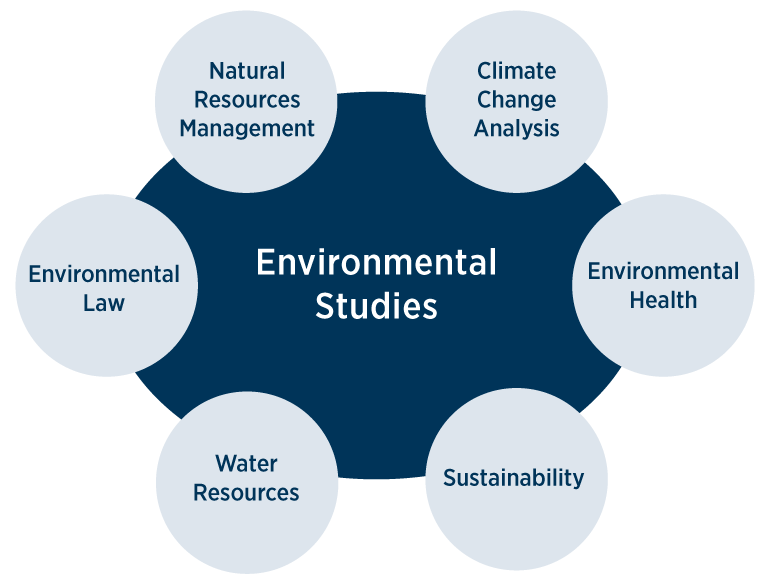
Is an environmental studies education right for you?
Environmental studies education provides students with the tools they need to investigate environmental phenomena, including GIS, soil sampling, and freshwater ecology, to policy-making and social science.
Environmental studies students at KU are encouraged to participate in experiential learning opportunities including study abroad, undergraduate research, co-curricular projects and internships. Environmental studies undergraduate students are involved in the intellectual life of the university and connected to their surrounding community.
What environmental studies programs are available at the KU Edwards Campus?
Undergraduate environmental studies programs at the KU Edwards Campus include BA, BGS, BS and minor options that are designed to prepare students for lifelong learning, leadership and success. See the choices below and download the program guides for more information.
KU Edwards Campus also offers a master’s degree (PMS) and graduate certificate in environmental geology.
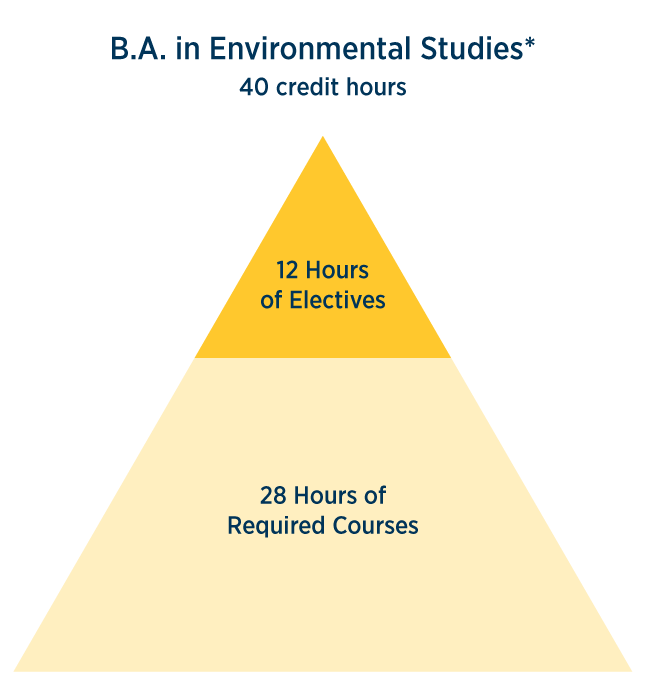
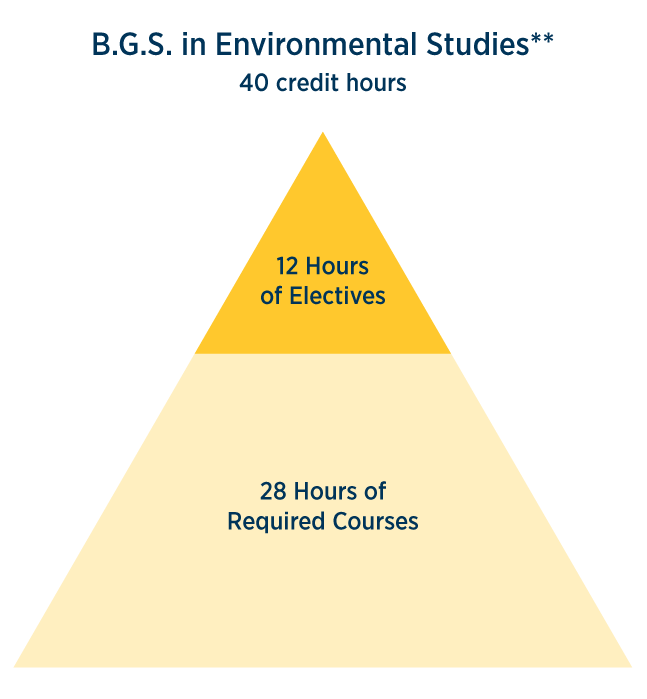
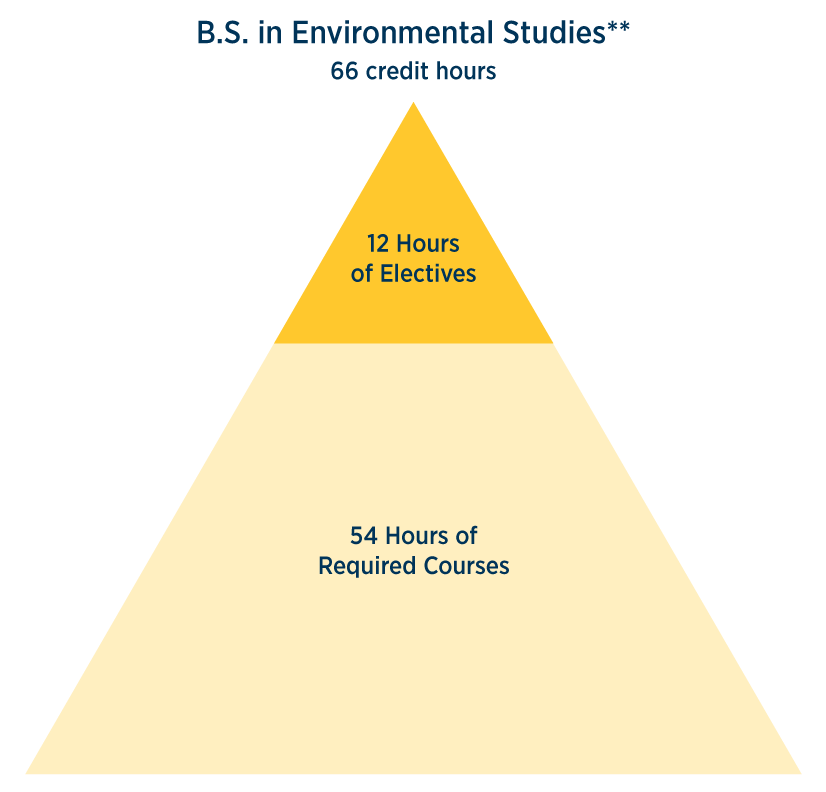
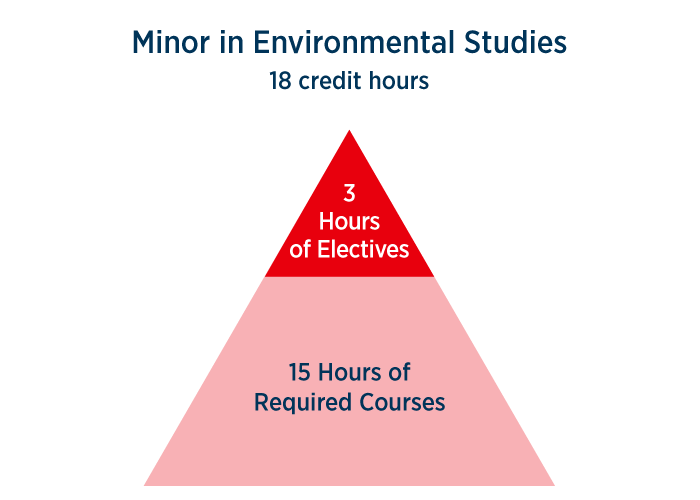
*Required courses for the Bachelor of Arts (BA) in Environmental Studies includes proficiency in one foreign language through the fourth level.
**Required courses for the Bachelor of General Studies (BGS) in Environmental Studies includes a secondary area of study, as well as completion of an approved career preparation course.
The KU Edwards Campus also offers an environmental studies minor. Visit our minors page to learn more.
Flexible
- Flexible course formats
- Major concentrations match student interest with experienced faculty
- MetroKC tuition rate available for Missouri students
Quality
- Credentialed, experienced faculty
- Two-time recipient of Award for Excellence in Undergraduate Advising from KU’s College of Liberal Arts & Sciences
- KU is one of 38 public university members of the prestigious Association of American Universities, a group of America's leading research universities
Useful
- Hands-on curriculum
- Opportunities for undergraduate research and study abroad
- Focus on problem solving and community engagement